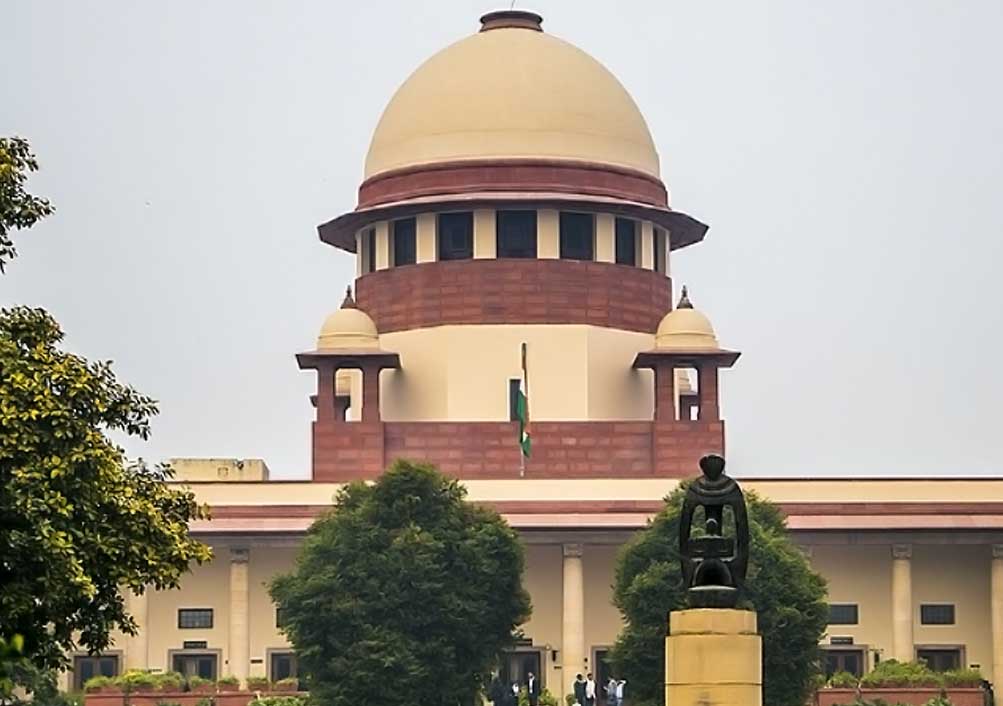Apex Court provides relief to National Gandhi Museum by quashing reinstatement ordered by High Court along with back wages; however,calls for award of appropriate compensation

Read Judgment: National Gandhi Museum vs. Sudhir Sharma
Pankaj Bajpai
New Delhi, September 29, 2021: The Supreme Court has recently set aside the direction passed by the High Court, whereby the National Gandhi Museum was ordered for reinstating the respondent employee along with back wages due to non-compliance with the requirement of obtaining approval by the Industrial Tribunal.
However, at the same time, a Division Bench of Justice Ajay Rastogi and Justice Abhay S. Oka observed that, when order of compulsory retirement was passed since the year 2004, the respondent has neither worked with the appellant, nor he has even pleaded that from the date of the compulsory retirement till date, he was not gainfully employed.
Hence, the issue as to discharge of burden by an employee that he is not gainfully employed after order of compulsory requirement, merits to be decided on the basis of facts & circumstances of each case by taking entire material on record into consideration, added the Bench.
The background of the case was that the Respondent was appointed as a Museum Assistant by the National Gandhi Museum which was managed by the Appellant. In 2002, an Office Order was issued by the appellant of cancelling the option of compensatory leave against extra attendance and instead provided for extra emoluments for extra attendance.
Objecting to the office order, the respondent allegedly assaulted the Museum’s Assistant Director and committed misconduct. He was accordingly served a charge sheet which was challenged by him by way of a Writ.
Based on a dispute raised by respondent and another employee during the pendency of such writ, the Government referred the dispute regarding cancellation of compensatory leave for adjudication to the Industrial Tribunal.
Pursuant to submission of the Inquiry Report by the Inquiry Officer, the respondent was held guilty of acts of subordination, causing disturbance to others in performance of their duty and causing violence in the office.
Accordingly, the Museum by an Office Order, imposed penalty of compulsory retirement on the respondent, and filed an application in accordance with section 33(2)(b) of the Industrial Disputes Act, 1947, seeking approval of imposition of penalty. However the said application was withdrawn on the ground that no necessary approval was required since it was a case of compulsory retirement.
When the respondent approached the High Court seeking declaration of compulsory retirement as null and void on account of Museum’s failure to obtain approval u/s 33(2)(b) of the Industrial Disputes Act the High Court directed the Museum to reinstate respondent in service with back wages.
After considering the arguments, the Top Court observed that the appellant cannot be allowed to raise a contention that it is not an Industry within the meaning of I.D. Act, since the appellant at all material times proceeded on the footing that it is an industry within the meaning of the provisions of the I.D. Act.
In fact, an application was made by the appellant for grant of prior approval as provided in sub-section 2(b) of Section 33 of the I.D. Act before the Industrial Tribunal, added the Court.
Secondly, the Top Court found that an industrial dispute was raised at the instance of the respondent on the demand for compensatory leave in lieu of the work done by the employees on holidays, and an award was made in the said industrial dispute by the Industrial Tribunal.
The contention that the appellant was not an industry was not raised in the said proceedings and in fact, a settlement award was passed in the dispute. Also, in the Writ Petition filed by the respondent for challenging the order of compulsory retirement, the said contention was not raised though the Writ Petition remained pending for four years, added the Court.
At the same time, the Division Bench found that the order of compulsory retirement passed against the appellant was set aside on the ground that an approval u/s 33(2)(b) of I.D. Act was not obtained by the appellant.
Stating that present is a case where a serious misconduct was established against the respondent and the said finding of the Inquiry Officer has not been disturbed on merits by the High Court, the Division Bench observed that the respondent did not raise any industrial dispute for challenging the outcome of the inquiry, wherein the Inquiry Officer concluded that the charge of assaulting the Assistant Director of the appellant was proved against the respondent.
Therefore, noticing that the appellant is carrying on noble activities of propagating the thoughts of the Father of Nation by using the corpus given by the Government and by utilizing donations, the Apex Court concluded that these factors should be considered for deciding the quantum of compensation which can be granted to the respondent in lieu of reinstatement.
Hence, the Top Court partly allowed the appeals by setting aside the order of reinstatement of the respondent and the order of payment of back wages to the respondent.
Sign up for our weekly newsletter to stay up to date on our product, events featured blog, special offer and all of the exciting things that take place here at Legitquest.




Add a Comment